China's foreign trade sustains growth with better structures
* China saw the scale and quality of foreign trade improve steadily as economic performance picked up.
* The country's total goods imports and exports expanded 2.1 percent year on year in H1.
* It is the first time China's goods imports and exports exceeded 20 trillion yuan in the January-June period.
BEIJING -- China's foreign trade maintained steady growth with better structure and competitive edge in the first half of the year, withstanding challenges brought by sluggish global economic recovery, rising geopolitical risks, and weakening external demand, official data showed Thursday.
The country's total goods imports and exports expanded 2.1 percent year on year to 20.1 trillion yuan (about 2.81 trillion U.S. dollars), according to the General Administration of Customs (GAC).
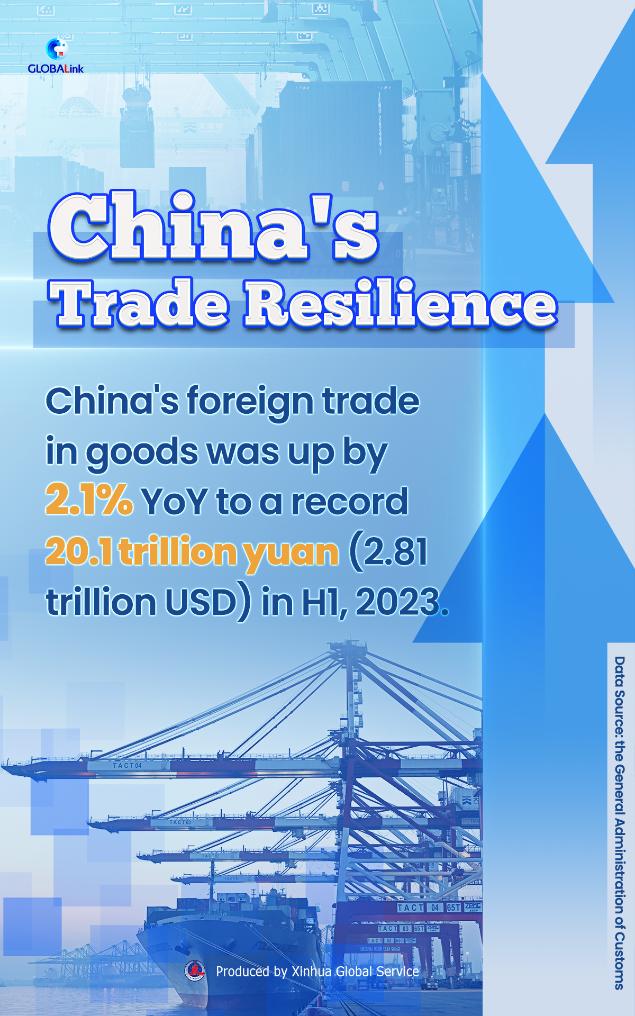
It is the first time China's goods imports and exports exceeded 20 trillion yuan in the January-June period, said GAC spokesperson Lyu Daliang at a press conference.
Exports grew 3.7 percent year on year to 11.46 trillion yuan while imports edged down 0.1 percent from a year earlier to 8.64 trillion yuan, the data showed.
China has seen the scale and quality of foreign trade improve steadily as economic performance picked up on the whole in the first half of the year, Lyu said.
The goods imports and exports in the first and second quarters reached 9.76 trillion yuan and 10.34 trillion yuan, respectively, with both registering year-on-year growth, according to the GAC data.
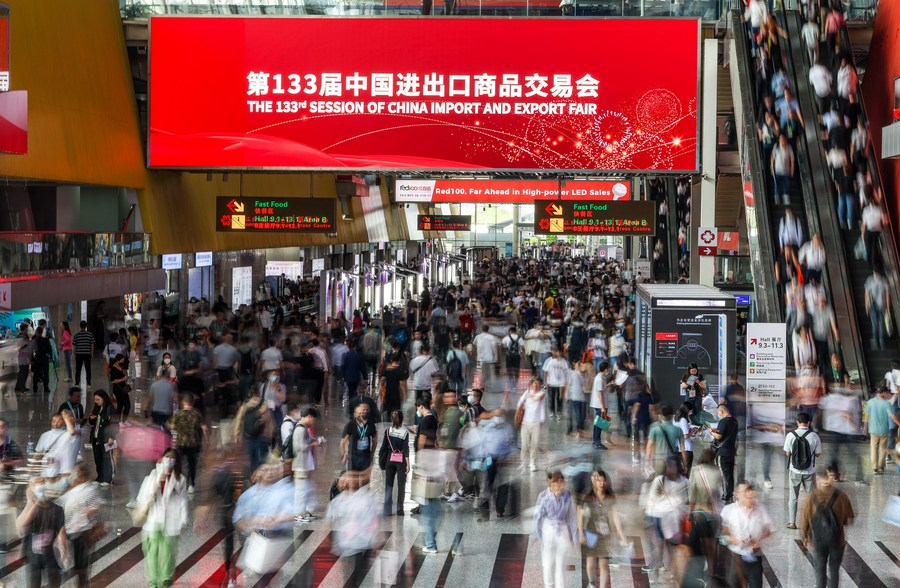
People visit the 133rd session of China Import and Export Fair, also known as Canton Fair, in Guangzhou, south China's Guangdong Province, April 15, 2023. [Xinhua/Liu Dawei]
Data also revealed that China's foreign trade had maintained an upward trajectory in the first half of the year.
The imports and exports recorded in the second quarter were 6 percent higher than that of the first quarter. Both May and June registered 1.2 percent month-on-month increases.
Private enterprises, a main contributor to China's foreign trade, saw their combined imports and exports grow 8.9 percent year on year to 10.59 trillion yuan.
The value represented 52.7 percent of the country's total and drove the overall foreign trade growth by 4.4 percentage points.
The import and export value of foreign-funded enterprises and state-owned enterprises accounted for 30.7 percent and 16.4 percent of the country's total, respectively.
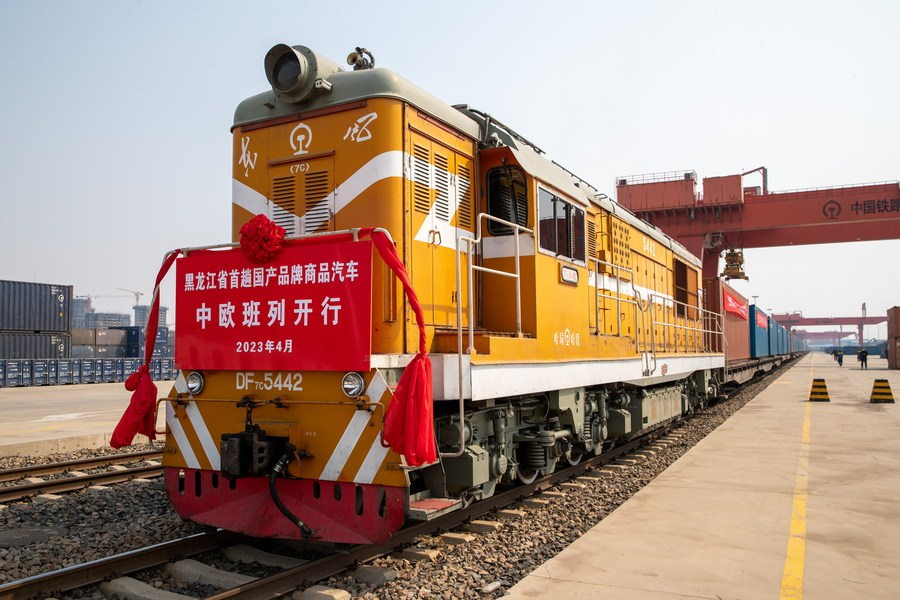
A China-Europe freight train loaded with Chinese-brand vehicles waits for departure at the Harbin international container center station in Harbin, capital of northeast China's Heilongjiang Province, on April 16, 2023. [Xinhua/Zhang Tao]
In the January-June period, China saw notable development in trade with countries along the Belt and Road and three major tech-intensive green products, gaining new competitive edges.
China's trade in goods with countries along the Belt and Road jumped 9.8 percent year on year in the first half of the year, 7.7 percentage points higher than the country's overall trade growth during the same period.
The total value of trade in goods between China and the countries along the Belt and Road accounted for 34.3 percent of the country's total.
The data also revealed that the value of China's trade in goods with other members of the Regional Comprehensive Economic Partnership rose 1.5 percent year on year in the same period.
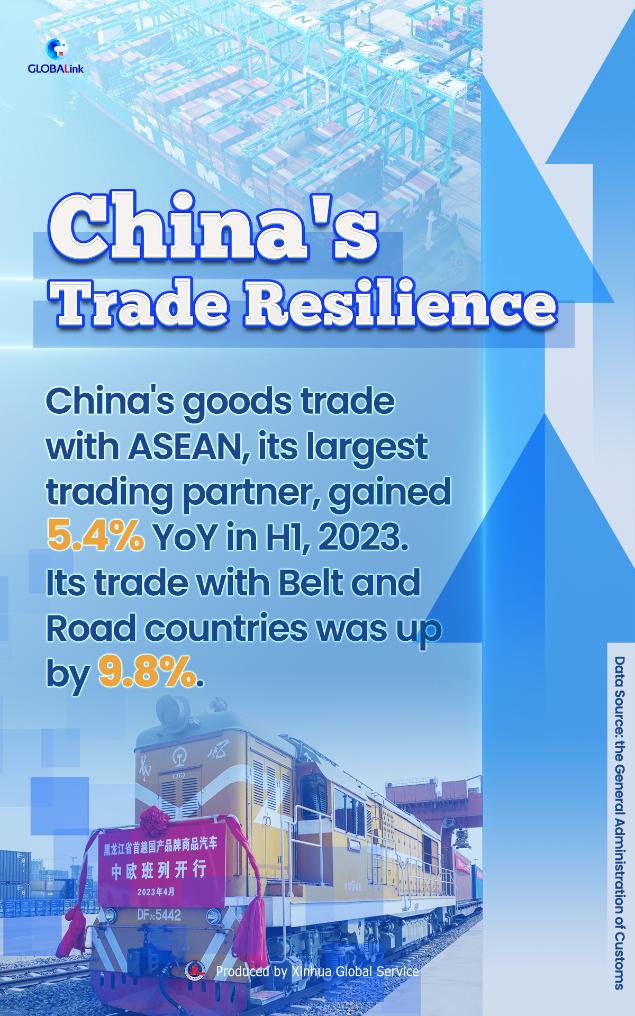
The Association of Southeast Asian Nations remained China's biggest trading partner in the first half of the year, with the two sides' trade in goods rising 5.4 percent year on year to 3.08 trillion yuan. The value accounted for 15.3 percent of China's total foreign trade value during this period.
China's trade in goods with the European Union rose 1.9 percent from a year earlier and accounted for 13.7 percent of China's total foreign trade value.
The country's trade in goods with the United States declined 8.4 percent year on year to 2.25 trillion yuan, accounting for 11.2 percent of China's total.
The total export value of China's three major tech-intensive green products -- solar batteries, lithium-ion batteries, and electric vehicles -- soared 61.6 percent year on year in the first half of 2023.
Together they contributed 1.8 percentage points to the overall export growth during the same period.
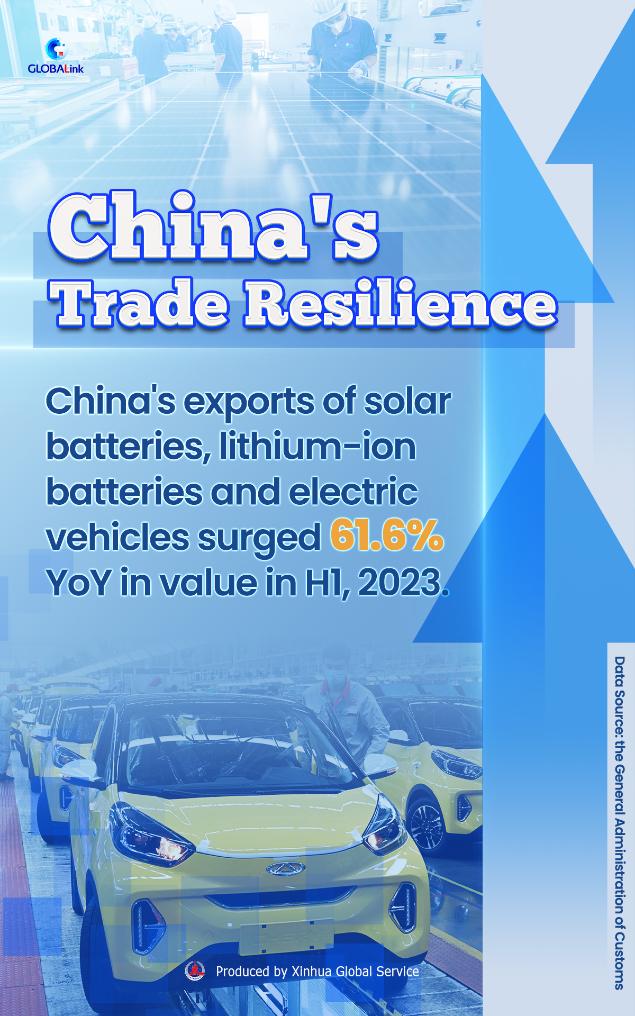
China's foreign trade structure also improved in various goods and regional distribution in the period.
The general trade, which involves longer industrial chains and higher added value, recorded a higher growth rate than the foreign trade in total, said Lyu.
The value of general trade accounted for 65.5 percent of the country's total.
The central and western regions and the northeastern regions accelerated the pace of opening up, with their imports and exports increasing by 2.8 percent and 4.5 percent, respectively. Their combined value accounted for 21 percent of the country's total.
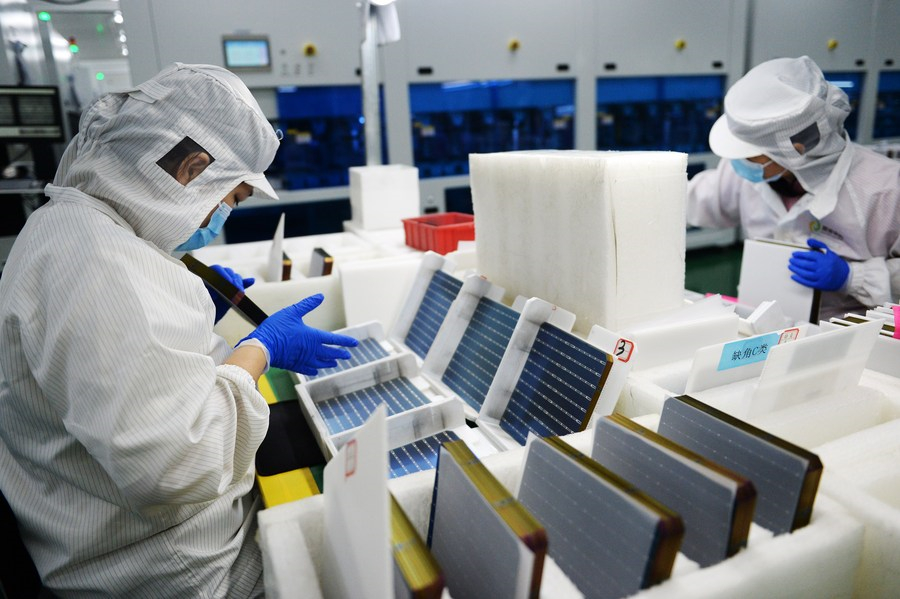
Employees work at a solar energy battery workshop of Shine Earth (Fujian) New Energy Co., Ltd. in Nan'an, Quanzhou City, southeast China's Fujian Province, June 17, 2023. [Xinhua/Liu Yongzhen]
Lyu acknowledged the challenges China faces regarding the development of foreign trade in the second half of the year, noting that inflation in major developed economies remains high, geopolitical conflicts persist, and short-term external demand recovery is insufficient.
However, China's economy has strong resilience and great potential, and its long-term sound fundamentals remain unchanged. As a series of policy measures continue to take effect, China has the confidence, foundation, and conditions to achieve the goal of steadily improving the scale and quality of foreign trade, said Lyu.
Video reporters: Hu Yousong, Luo Hui, Mu Xuyao, Liu Yutian, Lin Lin and Liu Ruoshi
























